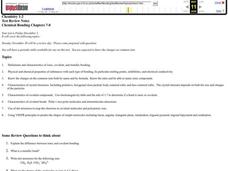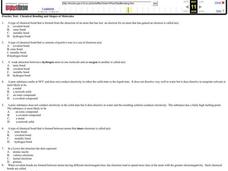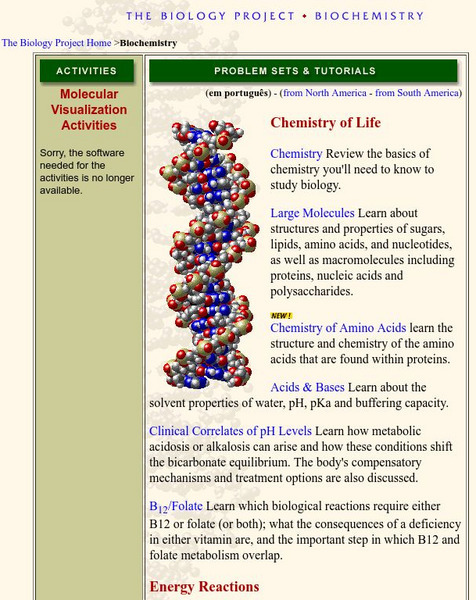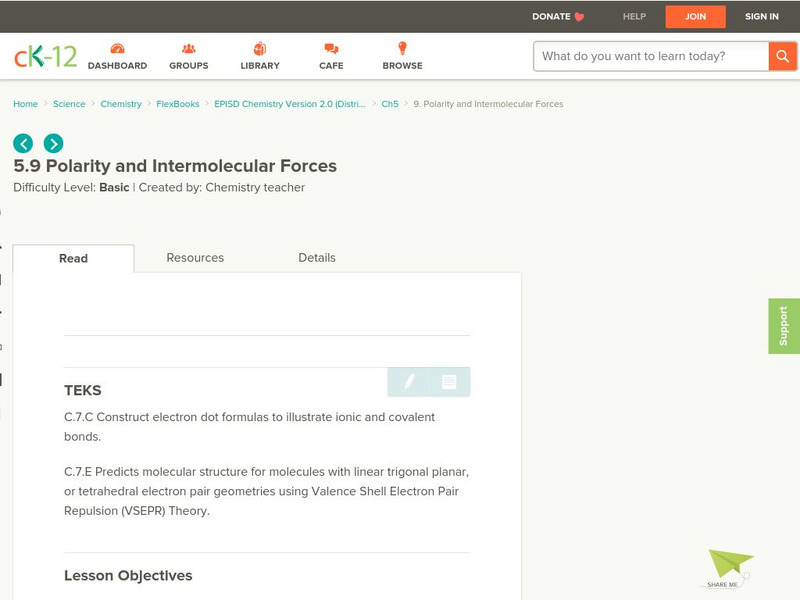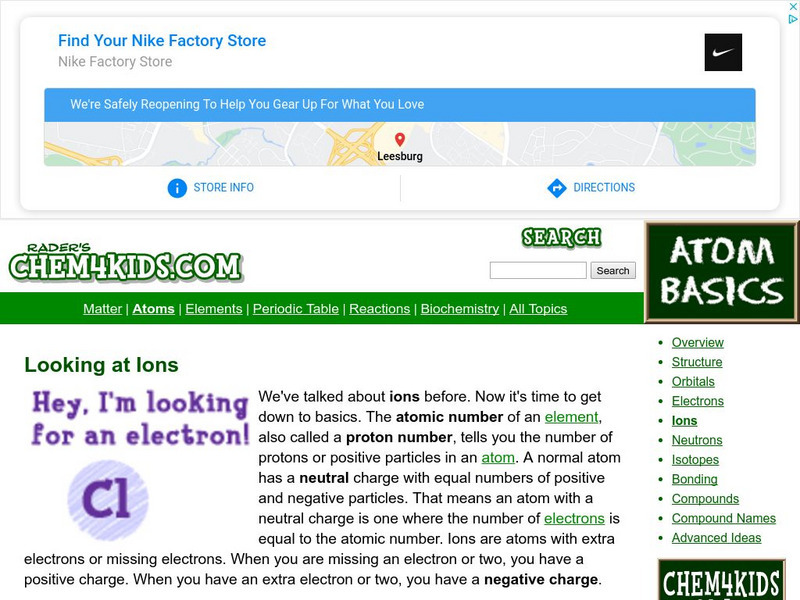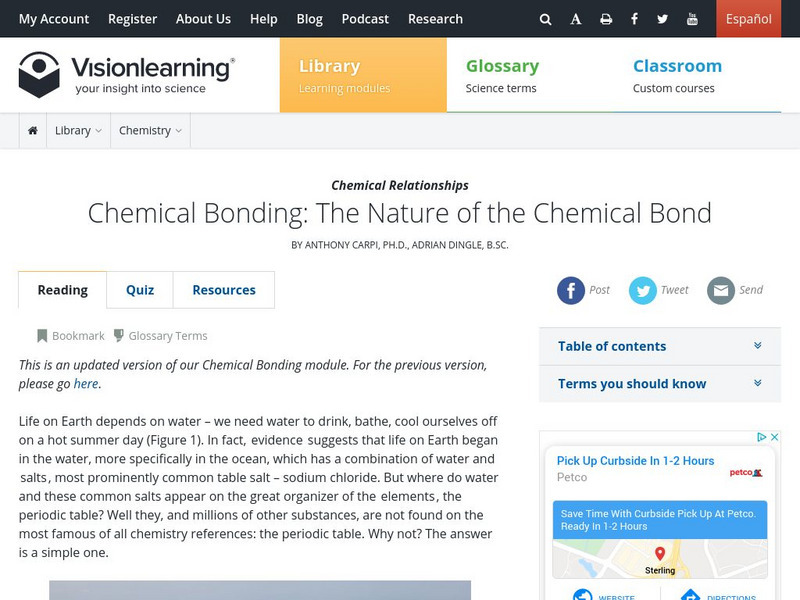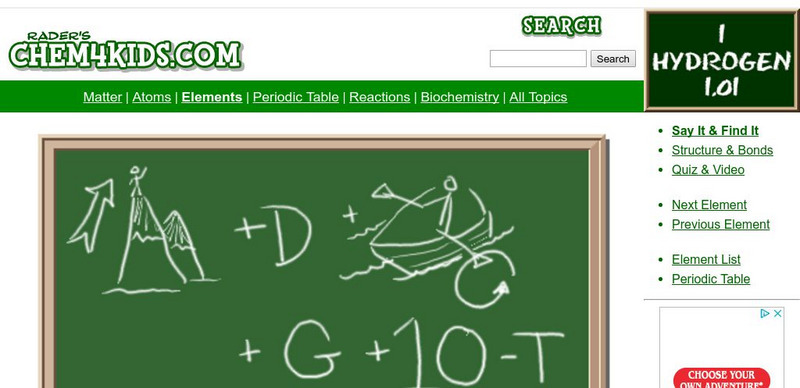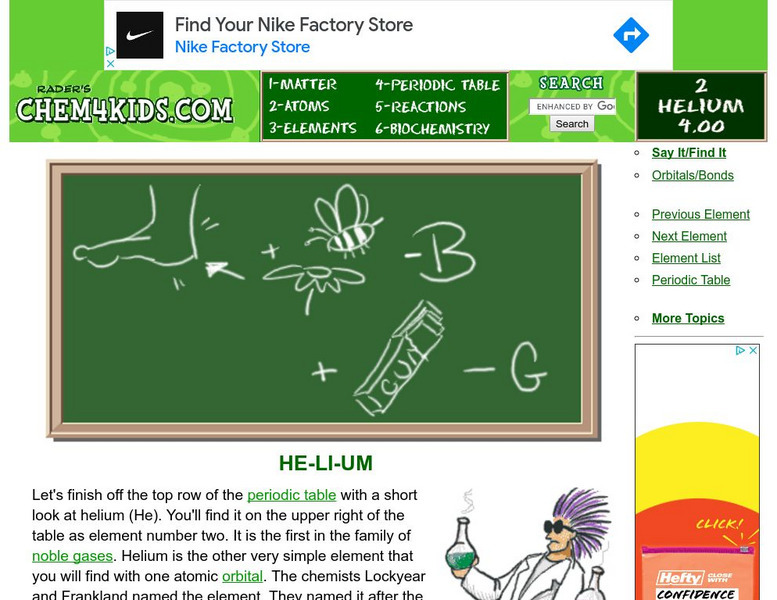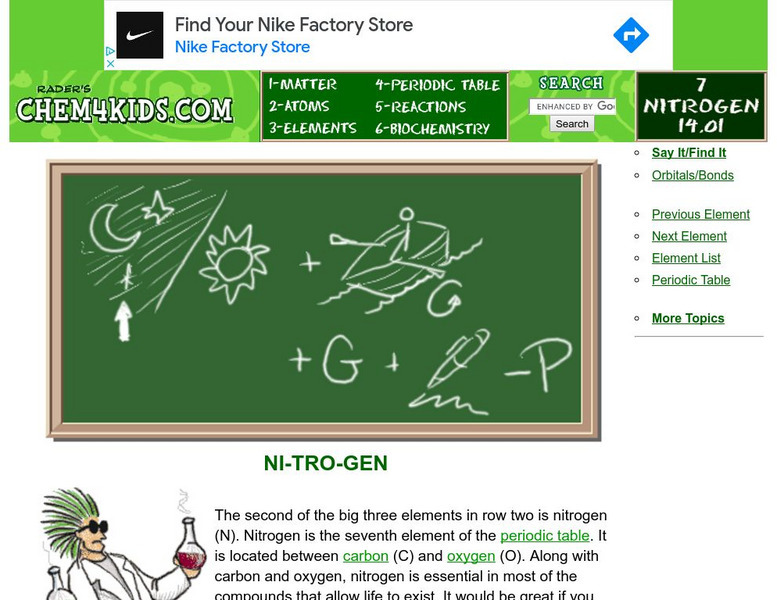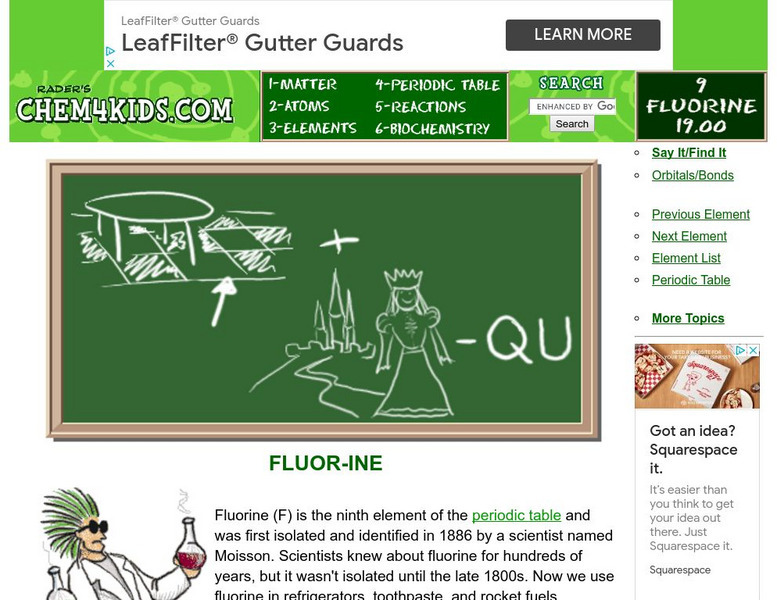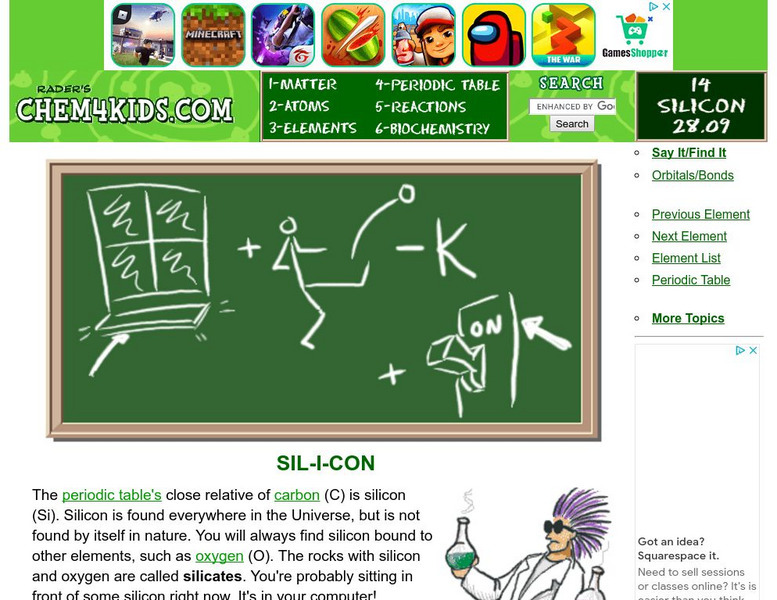Curated OER
Chemistry Chapters 8 & 9
In this chemistry worksheet, students explain the difference between a covalent bond and an ionic bond. Then they write the Lewis symbol for the atoms and ions presented, such as carbon and sulfur. Then they predict whether the molecules...
Curated OER
Section 4.2: Ionic and Covalent Bonding
There are only six short answer questions on this assignment. Chemists explain electrical conduction properties of salt, salt water, and gold. They compare ionic and covalent bonds. The explain bond strengths. Perhaps you could use this...
Curated OER
Recognizing Polar Molecules
In this polar molecules worksheet, students complete a graphic organizer by writing in the bond type, electron dot diagram, and the type of compound for the chemical compounds given.
Curated OER
Chemical Bonding
In this bonding worksheet, students review topics associated with chemical bonding including, ionic and covalent bonding, shapes of molecules, and writing chemical formulas. This worksheet has 8 problems to solve.
Curated OER
Chemical Bonding
In this chemical bonding worksheet, students explain the difference between ionic and covalent bonding, determine the shapes of molecules, and write chemical formulas. This worksheet has 6 problems to solve.
Curated OER
Chemical Bonding and Shapes of Molecules
In this chemical bonding instructional activity, students review the different types of bonds and calculate the number of valence electrons in molecules. This instructional activity has 11 matching and 15 multiple choice questions.
Curated OER
Review for Chemistry
In this review for chemistry worksheet, students decide if given statements are true or false. Students relate information learned about introductory knowledge gained in chemistry to accurately answer the given questions.
Curated OER
Bonding Basics - Ionic Bonds
In this chemistry learning exercise, students complete the chart for each of the listed elements, including the number of protons, electrons, and valence electrons. Then they complete each of the ionic bonds that follows.
Curated OER
Bonding Basics Practice Page
For this chemistry worksheet, students complete each of the bonds listed. They draw the Lewis structures for each atom and show the transfer of electrons and charge for each ion. Students also draw the Lewis structures for each atom and...
American Chemical Society
Middle School Chemistry: Energy Levels, Electrons, Ionic Bonding
Students discover that ionic bonding occurs when electrons are transferred from one atom to the other and not shared as in covalent bonding.
PBS
Pbs Learning Media: The Structure of Metal
In this interactive activity from the NOVA Web site, animations explain different aspects of the properties of metal.
University of Arizona
University of Arizona: Biochemistry
Problem sets, tutorials, and activities related to biochemistry.
CK-12 Foundation
Ck 12: Polarity and Intermolecular Forces
[Free Registration/Login may be required to access all resource tools.] The following online tutorial describes how the electronegativity difference between two atoms in a covalent bond results in the formation of a nonpolar covalent,...
Chem4kids
Chem4 Kids: Ions
Here at Chem4Kids you can learn all about ions. Content explores what an ion is, its various characteristics, electrovalence, and more.
Vision Learning
Visionlearning: Chemistry: The Nature of the Chemical Bond
This site talks about ionic, polar covalent, and non-polar covalent bonding.
Chem4kids
Chem4 Kids: Hydrogen
Here you can find out about hydrogen, the first element in the periodic table. Content includes shell information, where to find it in nature, and why it is helpful to us.
Chem4kids
Chem4 Kids: Helium
Here you can find lots of great information about helium. Learn about its electrons, where it exists in nature, and about the element itself!
Chem4kids
Chem4 Kids: Carbon
Click on the left navigation terms for some great information about the 6th element in the periodic table, "carbon." Content focuses on carbon's electrons, where you can find carbon in nature and in the home, and how carbon combines with...
Chem4kids
Chem4 Kids: Nitrogen (N)
Here you can find some great information about the 7th element in the periodic table, "nitrogen." Content focuses on nitrogen's electrons, where you can find nitrogen in nature and in the home, and how nitrogen combines with other elements.
Chem4kids
Chem4 Kids: Fluorine
Here you can find some great information about the 9th element in the periodic table, "fluorine." Content focuses on fluorine's electrons, where you can find fluorine in nature and in the home, and how fluorine combines with other elements.
Chem4kids
Chem4 Kids: Neon (Ne)
Here you can find some great information about the 10th element in the periodic table, "neon." Content focuses on neon's electrons, where you can find neon in nature and in the home, and how neon combines with other elements.
Chem4kids
Chem4 Kids: Sodium (Na)
Here at Chem4Kids you can find some great information about the 11th element in the periodic table, "sodium." Content focuses on sodium's electrons, where you can find sodium in nature and in the home, and how sodium combines with other...
Chem4kids
Chem4 Kids: Magnesium (Mg)
Here you can find some great information about the 12th element in the periodic table, "magnesium." Content focuses on magnesium's electrons, where you can find magnesium in nature and in the home, and how magnesium combines with other...
Chem4kids
Chem4 Kids: Silicon (Si)
Here you can find some great information about the 14th element in the periodic table, "silicon." Content focuses on silicon's electrons, where you can find silicon in nature and in the home, and how silicon combines with other elements.






